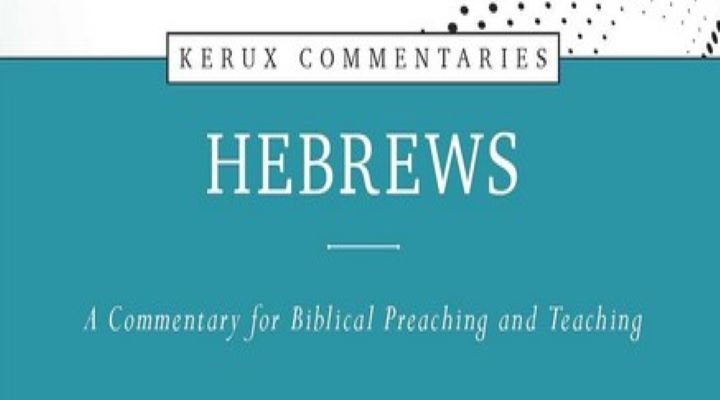Bateman, Herbert W. IV and Steven W. Smith, Kerux Commentaries: Hebrews. Bellingham: Kregel, 2021. 389 pp. $36.99
Biographical Sketch of the Authors
Herbert W. Bateman is president of the Cyber-Center for Biblical Studies and has taught exegesis of the New Testament for over twenty years. He also served as editor on Understanding the Gospels: A Guide for Preaching and Teaching and Four Views of the Warning Passages in Hebrews.
Steven W. Smith serves as senior pastor of Immanuel Baptist Church (Little Rock, Arkansas) and has taught homiletics for over fifteen years. He also authored Dying to Preach and Recapturing the Voice of God.
Introduction
I previously reviewed the Ephesians: Kerux Commentary from Kregel here. As I noted before, the Kerux series takes a three-pronged approach to each biblical passage. The authors begin with exegetical analysis by examining the original languages, grammar, historical background, and so on. Building on the exegetical analysis, they focus in on theology, hoping to bring out “truths that transcend time and culture.” Finally, the authors explore how to best preach and teach the text. With each edition in the series, one author handles exegesis and the other covers homiletics. For the commentary on Hebrews under review here, Bateman authored the exegetical sections and Smith addresses preaching and teaching concerns.
Authorship and Date
The identity of the author of Hebrews has been debated for thousands of years and even conservative scholars cannot seem to agree. Some believe it was Paul, or Luke, or Luke writing it down for Paul. Interestingly, Bateman and Smith hold to the view that Barnabas wrote the epistle (39-43.) Readers should be aware of this when the authors say things like “Barnabas writes …”, “What Barnabas is saying …” and so on. They place the date of the writing of Hebrews between 50 and 70 A.D., possibly just before Nero’s persecution of believers in 64 A.D. or just before the Judean war with Rome two years later (47).
Christ, the Final Spokesman
I found Bateman’s outline to be particularly helpful. The passages from Hebrews 1:14 fall under the section where he identifies Christ as “God’s Final Spokesman: Divinely Appointed, Divinely Related, and Divinely Authoritative (66; 70-82).” I also appreciated Smith’s pointers for preaching teaching the supremacy of Christ, or he what calls the “betterness” of Jesus which “extends to all things (80).” As he rightly puts it, “Those who do not exalt Jesus are avoiding reality, even if they don’t know it. They are living delusional, fake lives.”
Warnings
I have written before about the difficulty of interpreting the warning passages in Hebrews. Is the author of Hebrews saying that a genuine Christian can lose their salvation? If a Christian cannot lose their salvation, why give the warnings? In this commentary, Bateman’s outline places the warning passages from Hebrews 6 with his section on “Reprimand for Apathy covering Hebrews 5:11 – 6:12 (186-199.) Again, the Kerux series is focused on practical preaching and teaching, so I was curious to see how these passages would be handled.
The authors appear to take the view that the writer (“Barnabas” in their opinion) is describing those who had been actual “converts (192),” and at the same time could later be described as “apostates (193).” While they do not resolve any and all of the points of tension in these passages, I suspect Bateman and Smith may be right when they say that the writer’s “point was that the act of turning away from Jesus was a visible display of hostility, unbelief, and rejection that was acted out when Jesus initially and quite literally was crucified (194).”
Conclusion
The Kerux Commentary on Hebrews from Bateman and Smith is another solid entry in this series from Kregel. The editors and authors serve their primary audience of active preachers and teacher well. Readers should be aware that some Greek and Hebrew terms are used but translation is provided in most cases and this should not be a hindrance for most readers. Preachers and Bible teachers should consider making this series one of their go-to resources.
Highly recommended.
A copy of this book was provided by the publisher in exchange for an honest review.






Robert, thank you very much for the kind words, brother. That sincerely means a lot to me that your spirit…